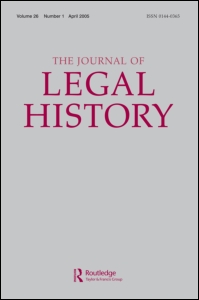Economica has just published a new book
dealing with the history of the French republic
ABOUT THE BOOK
Des origines à la Ve République
Qu’est-ce que la République ? Quels sont ses principes et ses valeurs ?
Certains prétendent que la République ne serait plus qu’un mot « vide de sens
». Pourtant, elle continue de fédérer les Français autour d’un même espoir de «
dignité pour tous ».
Paradoxalement, l’histoire de la République reste mal connue. Ce manuel
retrace dans son ensemble l’histoire politique, institutionnelle et juridique
de la Ire à la Ve République, exercice jusqu’à présent inédit. Présenter cette
histoire controversée et toujours amplement débattue impose de remonter à ses
fondements idéologiques à partir de la redécouverte d’Aristote au Moyen Âge qui
donna naissance à un « républicanisme classique » qui se répandra des Cités
italiennes aux États-Unis d’Amérique. Mais les « Lumières radicales » vont
donner à ce républicanisme une connotation particulière en France, en
l’associant à la démocratie, ce qu’on appellera l’ « exceptionnalisme
républicain français ».
À partir de 1789-1792, la République devient l’objet de grands
affrontements politiques et pendant plus d’un siècle source de divisions,
parfois même au sein du camp républicain. Plus complexe que ne le laissait
jadis entrevoir l’étude téléologique de l’idée républicaine, cette histoire révèle
qu’il n’y a pas une tradition républicaine mais plusieurs (conservatrice,
libérale, jacobine, plébéienne). Ces sensibilités se sont parfois confondues
mais aussi souvent affrontées autour des périmètres d’un régime qui se veut la
chose de tous.
ABOUT THE AUTHORS
Jacques de SAINT VICTOR est Professeur d’Histoire du droit à l’Université
de Paris XIII et au CNAM.
Thomas BRANTHÔME est Maître de conférences en Histoire du droit à Paris
Descartes (Paris V) et à Sciences Po (Paris).
TABLE OF CONTENTS
Titre introductif - La
République sous la monarchie : L’émergence de la singularité républicaine
française (XIIIe-XVIIIe siècles)
Chapitre introductif – L’idée républicaine en France avant 1789
Chapitre I – Le retour de la « République des Anciens » (XIIIe-XVe siècles)
Chapitre II – L’émergence de la « République des Modernes » ou l’affirmation
de l’État en France (XVIe-XVIIe siècles)
Chapitre III – L’affirmation de « l’exceptionnalisme républicain » français
au XVIIIe siècle (1715-1789)
Titre I - Naissance de la
République en France (1789-1814)
Chapitre I – Le « récit des origines » ou la République qui s’ignore
(1789-1792)
Chapitre II – La République absolue (1792-1794)
Chapitre III – La République désenchantée (1794-1799)
Chapitre IV – Le crépuscule républicain (1799-1814)
Titre II - La République
incertaine (1814-1870)
Chapitre I – La nuit républicaine (1814-1848)
Sous-chapitre I – La République sous la Restauration (1814-1830)
Sous-chapitre II – La monarchie de Juillet : la « meilleure des Républiques
» ?
Chapitre II – La Deuxième République ou le Janus républicain (1848-1852)
Chapitre III – La gestation d’une troisième République : les Républicains à
l’épreuve du Second Empire (1852-1870)
Titre III La consécration
républicaine (1870-1919)
Chapitre I – Naissance de la IIIe République (1870-1879)
Chapitre II – La « période athénienne » : le sacre du Républicanisme
libéral (1879-1885)
Chapitre III – Des « Opportunistes » aux « Progressistes » : la première «
République du Centre » (1885-1899)
Chapitre IV – L’enracinement républicain : de la « Défense républicaine » à
la Victoire (1899-1918)
Titre IV Heurs et malheurs
républicains – De 1919 à la Ve République
Chapitre I – Le « Bas Empire » de la République (1919-1940)
Chapitre II – Agonie, Exil et Restauration de la République (1940-1946)
Chapitre III – La Ive République ou la rémanence du « Bas Empire »
républicain (1947-1958) ?
Chapitre IV – La grande synthèse – Les fondations de la Ve République
« Normalisation », mutations, dénaturations ?













.png)

